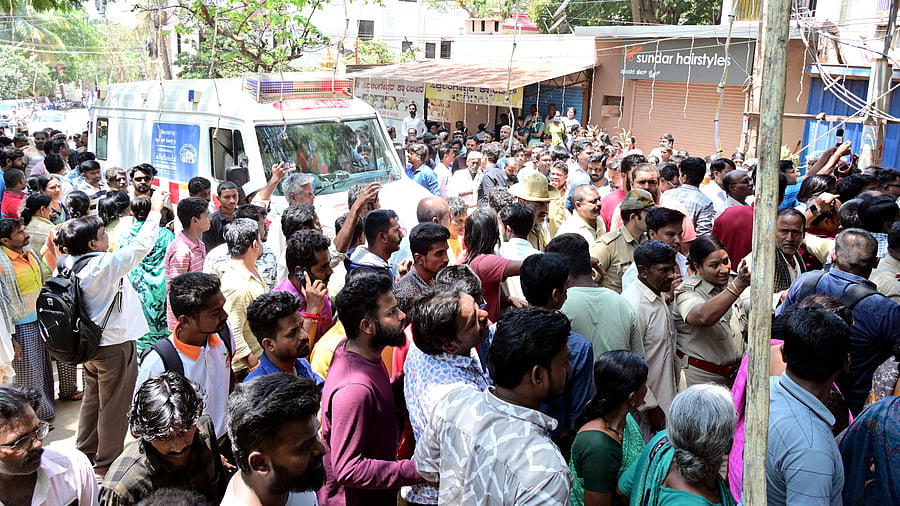
A large number of public gathered near the house of the deceased five-year-old girl in Hubballi on Monday.
DH Photo
The fatal shooting of Ritesh Kumar, 35, a migrant from Bihar accused in the abduction, sexual assault, and murder of a five-year-old girl in Hubballi, by the police in an encounter demands rigorous scrutiny. According to Hubballi-Dharwad Police Commissioner Shashi Kumar, the accused attacked police officers with stones while being taken for questioning, prompting a woman police inspector to first fire a warning shot, followed by shots to the knee and to the back. However, the narrative is riddled with inconsistencies. Why was Ritesh Kumar not handcuffed, a standard security protocol? If the initial shot to the leg was intended to immobilise him, why was it followed by a fatal shot to the back? The incident has drawn comparisons with contentious tactics employed by the police forces in other states, notably Uttar Pradesh, known for frequent encounter killings. Was there pressure on the local police to deliver immediate justice in the face of intense public outrage and protests? Most disturbingly, could this shooting be interpreted as a chilling message directed at the growing migrant population which has recently faced suspicion in connection with various crimes, including dacoity?
Undeniably, the crime that Ritesh Kumar was accused of – the abduction and murder of a child – is beyond horrific and rightly evokes public anger. However, justice cannot and must not be delivered through summary execution.
The killing raises serious human rights concerns, as the right to life and the principles of due process are fundamental tenets of both the Constitution and international law. Bypassing the established judicial process not only violates these rights but also undermines the very foundation of our legal system. As the International Commission of Jurists has pointed out, encounter killings, even in emotionally charged situations, erode the rule of law.
The Karnataka government has rightly ordered an inquiry. This investigation must be conducted with utmost transparency and independence, shielded from any political and public pressure. Accountability must be fixed, irrespective of public sentiment. Should the inquiry reveal any police excesses, decisive action must be taken. Simultaneously, society must resist the temptation of instant justice. While anger may be understandable, it cannot be allowed to supplant the established legal process. Courts exist to ensure that punishment is just, proportionate, and based on evidence. When the demands of a mob for instant retribution are met by institutions like the police, we risk descending into a system where justice is dictated by impulse rather than truth. Justice must be firm, but it must also be fair. The pursuit of justice cannot, under any circumstances, become a licence for vigilantism.
